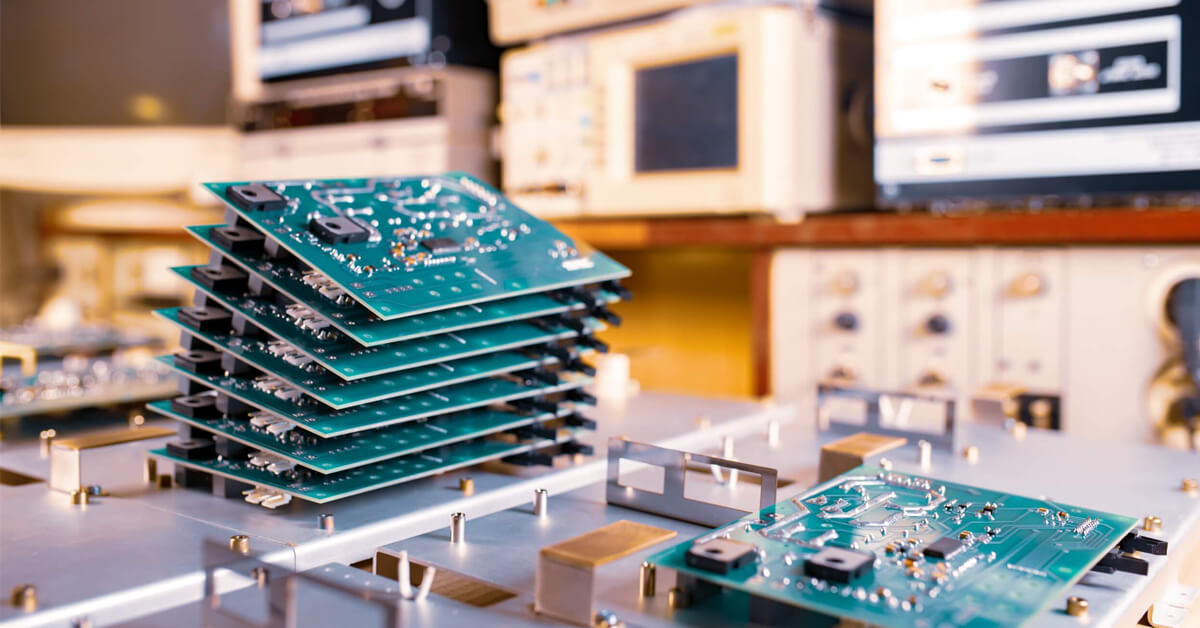It is almost as hard to find the appropriate contract electronics manufacturer or CEM, as a needle in a haystack. This partnership is often the key to the success of your product and hence the decision is very critical to your business. A great CEM is not merely a collection of parts, but a part of your team, who can provide knowledge, quality, and make you scale.
Making the wrong partner may have a domino effect on the company with delays in production, quality control and increasing costs. These failures will hurt your brand reputation and cost you in terms of resources, particularly when you are starting a business or are small to medium in size because every decision matters.
The 6 Destination Success Factors in a Contract Electronics Manufacturer
The choice of a contract electronics manufacturer is a strategic move which ought to be critically considered. These six points will help you to make a decision.
1. Technical Capabilities and Expertise
The first one should be to make sure that contract electronics manufacturer possesses the technical expertise and experience in your specific product. Not every manufacturer is equal some of them can be high-volume consumer electronics, and others may be low-volume high-complexity medical or aerospace devices.
In considering a potential partner, one should take into account the following:
Services Offered: Do they offer all the services, comprising design and prototyping, PCB assembly or PCBA, testing, & final assembly? The ability to deal with the complete production lifecycle will save you time and ease the burden of dealing with a large number of vendors.
Technology/ Equipment: What type of technology and equipment do they have? Find new, well serviced equipment that fits your product in terms of technical demands. This includes their Surface Mount Technology (SMT), Through-Hole Technology (THT) and their special assembly processes that you may require.
Engineering Support: A good CEM must possess a good engineering staff. These professionals can provide invaluable Design for Manufacturability (DFM) advice, which aids you to simplify your design to achieve more cost effective and efficient fabrication. Such cooperation at an early stage may eliminate expensive redesigns in the future.
2. Quality Control and Certifications
Quality is non-negotiable. Even one defective component can cause product failure, recall and major losses to your brand. A trusted CEM shall possess an effective quality management system (QMS) that will guarantee that all units comply with your standards.
Some of the important signs of quality commitment entail:
Industry Certifications: Locate industry-specific certifications, comprising general quality management through ISO 9001, medical equipment through ISO 13485, or aerospace through AS9100. These certifications prove that the manufacturer follows the internationally accepted standards.
Test and Inspections Processes: Ask them about their testing and inspection processes. Do they do automated optical inspection or AOI, in circuit testing or ICT, & functional testing? The presence of an elaborate testing plan is essential in identifying and rectifying faults at the initial stages of production.
Traceability: A quality management system should have component and process traceability. This implies that the manufacturer will be able to trace all the parts and the processes that were employed in the manufacture of your product. Traceability helps to easily pinpoint the cause of the failure and take corrective measures in case of a failure.
3. Scalability & Flexibility
There is likelihood that your manufacturing requirements will vary. Perhaps initially you can bring in a small lot and prototype and test your product in the market, however, later on, as your product picks up, you will have to increase production. CEM that you have selected must be able to expand with you.
Find out their scalability & flexibility:
Volume of production: Are they able to deal with low volume as well as high volume production? A flexible partner is able to suit your requirement at all the stages of the life cycle of your product, both in prototyping and in full scale production.
Lead Times: How often do they have lead times with their various order sizes? Talk about how they make their production plan and how they could be accommodative to any urgent demand or alterations in my forecast.
Receptiveness to Change: The electronics business is fast. Contract electronics manufacturer must be responsive to design changes, component replacement or a change in the market demand without incurring a lot of delays.
4. Supply Chain Management
The capacity of a manufacturer to control its supply chain has a direct effect on the production schedules and expenses. A CEM that has powerful and robust supply chain is an invaluable asset in an age of parts shortages and supply logistics difficulties.
In judging their supply chain capabilities, take into account:
Component Sourcing: What is their component sourcing? Are they well connected with a large circle of loyal distributors and suppliers? This will contribute to maintaining the supply of authentic and quality parts.
Counterfeit Prevention: What are their actions to stop the entry of counterfeit components in the supply chain? An established CEM will be one with rigorous procurement policies and checks.
Inventory Management: Question them about their inventory management strategies. An effective supplier that can assist you in controlling the inventory of the components can decrease the carrying costs and render the chances of obsolescence to a minimum level.
5. Communication and Customer Support
Any successful partnership is based on clear and consistent communication. Your CEM must be receptive, open and approachable. Consider them as a sort of a continuation of your own team.
Assess their communication and support by regarding:
Transparency: An excellent partner will be transparent and honest regarding their processes, capabilities, and challenges possible. Find a manufacturer that will be ready to update and cooperate on solutions.
Fit: Does the company they belong to fit yours? A common cause of a relationship may be a sense of quality, innovation, and customer satisfaction.
6. Cost and Overall Value
The cost as such is a factor although it should not be the sole factor. Certainly, the lowest cost is not always the best. Look for a partner that would provide the best total value between price and quality, reliability and service.
In calculating cost, do not simply consider the price per unit:
Transparent Quoting: Have the quote that is detailed and that separates all costs of tooling, labor, component, and testing. Be cautious of hidden charges or vague price models.
Total Cost of Ownership: The next one is the Total Cost of Ownership that involves not only the manufacturing price but the costs associated with quality problems, delays, and relationship management. A trusted partner may be costlier in the short run, but would cost you less in the long run as he can provide you with a better product with fewer issues.
Value-Added Services: What are other services they provide which can value add to your business? This may be design support, supply chain management, or end-of-life product support.
Conclusion
The selection of a contract electronic manufacturer is a business decision that will affect your business forever. Considering all the 6 key factors carefully when screening potential partners, you would be able to identify a CEM that not only satisfies your technical needs but also one that fits well into your business objectives.
The appropriate manufacturing partner will not simply create your product, they will offer experience, quality and will help you grow. Considering that, take the time to do your due diligence, dig probing questions and visit facilities where possible. A decision made in the present to find the right partner will continue to give returns over the years and your product and your company is poised towards future success.




